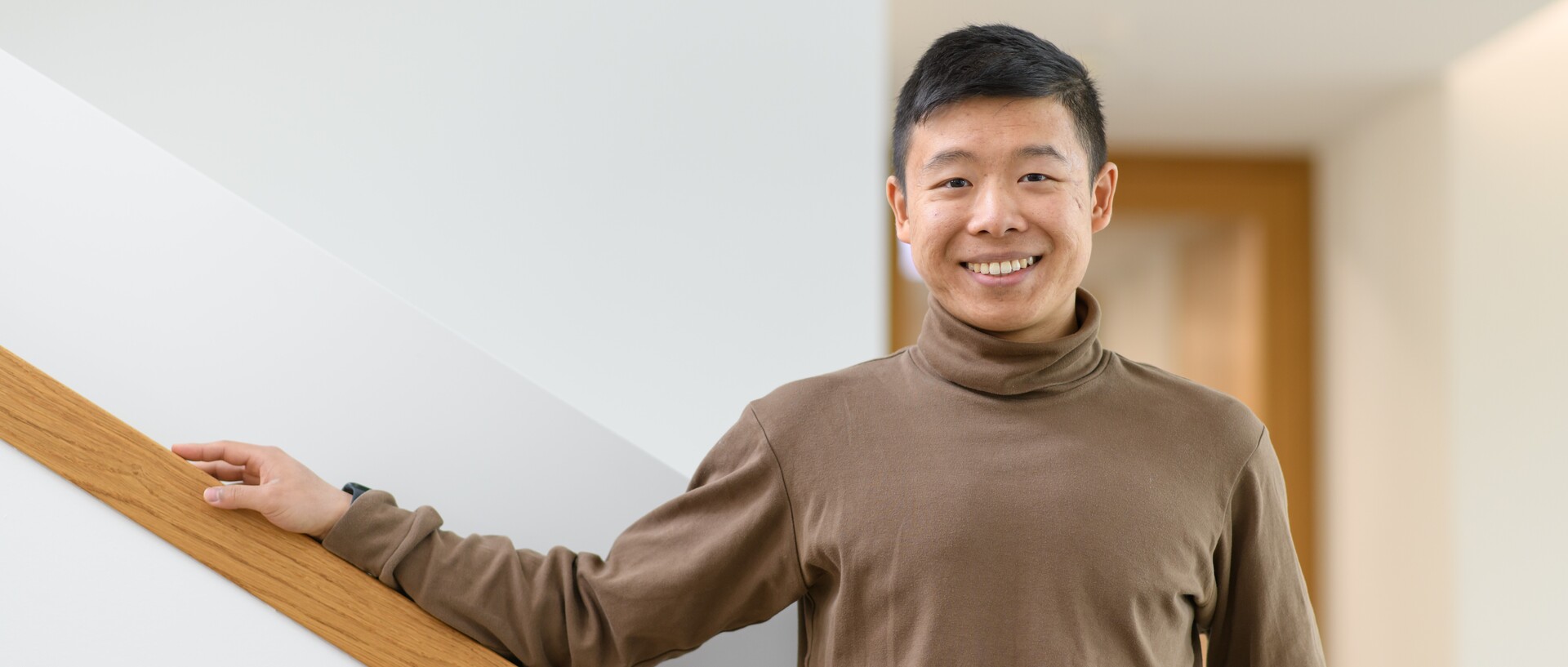“Taking It All in and Experiencing German Culture Is Worthwhile So That You Can Make a Lot of Memories.”
Jianming Cui is 25 years old. After graduating with a bachelor’s degree in Business and Economics in his hometown of Canton, China, he decided to study at the University of Mannheim. Now he is in the fourth semester of the master’s program in Economics specializing in competition and regulation. In Jianming Cui’s myUniMA story, he talks about the services of the University of Mannheim he values the most outside of the lecture halls and why foreign languages are important to him.
What did you do before studying in Mannheim and why did you decide to study in Germany?
My bachelor’s program was a combination of Economics and Business Administration. I learned quite a bit about Economics, but I did not know a lot about competition and regulation or industrial organization (IO). I always wanted to study abroad. Originally, I wanted to study in Great Britain or the US. I even was admitted to Columbia University in New York. Then I found the website of the University of Mannheim and noticed that it is a very good university with an excellent reputation. In addition, the costs of studying in Germany are significantly lower than in the US. Germany is a beautiful country and there are good career opportunities. I also like learning new languages.
What was it like to settle in Mannheim?
At the beginning, it was rather difficult. I arrived at the height of the coronavirus pandemic and expected to get the real campus experience. But at the end of 2020 and the beginning of 2021, campus life was practically non-existent. I had to stay at home the entire time and attend my lectures online. This worked out great and the university offered great support, but I missed my fellow students. The situation improved considerably in the second semester. There were more and more on-campus classes, and I was able to make friends. We eat together at the Mensa or go to the library to study almost every day. This is how I imagined it to be.
Your program is taught completely in English, but you started to learn German during your bachelor's degree and now you are learning Italian as well. What makes learning new languages so fascinating for you?
About three years ago, when I decided to study in Germany, I started to learn German. At the beginning, I attended courses, but they did not help me much. Then I started to learn twenty new words every day and to talk to another person or myself for twenty minutes. This method and a few listening comprehension exercises helped me a lot, but I didn’t make much progress until I got to Germany.
I started to learn Italian last year when I vacationed in Italy. I just think it is a beautiful language and easy to listen to. I thought to myself, now that I am proficient in German, I am looking for a new challenge, this time a Romance language. Another reason is that I have a few Italian friends and I would like to learn their mother tongue for them. So, I just started. I can have some little conversations, but I am making slower progress than when I learned German.
What do you like to do in your spare time?
My friends and I go to the university sports program almost every week. I think it is great that the university offers this program, and I am very grateful for it. Our favorite is the GWO workout, an interval training. It is a group training with a trainer who shows you what to do. You are training with a group but can chose your own rhythm.
My fellow students from my degree program sometimes organize game and cooking nights in the evening. I really like to cook, especially Chinese food, and it’s always very funny if German people have never tried the food and then really like what I have cooked. We also go to parties – and do everything that is part of student life.
You are also working for Müttersprache. Can you tell us more about these activities?
Müttersprache is a project which offers free German language courses for mothers with a migration background. The mothers can attend the language courses. At the same time, their children are supervised in the adjacent room so that they can focus on learning German. Back in 2022, I saw this add on Instagram. Since I have a younger sister, who is only 13 years old, I really like playing and crafting with children. When I was younger, we spent a lot of time together. Once a week, I help taking care of the children. After I learned German so quickly, I wanted to help others learning German, tool I also help preparing the documents for the class.
You have already submitted your master’s thesis. What are your plans?
I am still at university until the end of the semester, but I have already started to look for a job. Ideally, I find a position in economic consulting. This has been the focus of my studies and the topic of my master’s thesis. Economic consulting is about damage estimates in the case of a cartel or monopoly, or merger control, that is, researching and writing expert opinions on whether a merger of two companies could change the market position and market power so that a cartel or monopoly could be created.
Do you have any tips for international students?
Taking it all in and experiencing German culture is worthwhile so that you can make a lot of memories. If you have any problems at the university or in your degree program, you can always contact the university or the International Office. Everyone is very friendly and happy to help.
Text: Sabrina Wagner / May 2023
